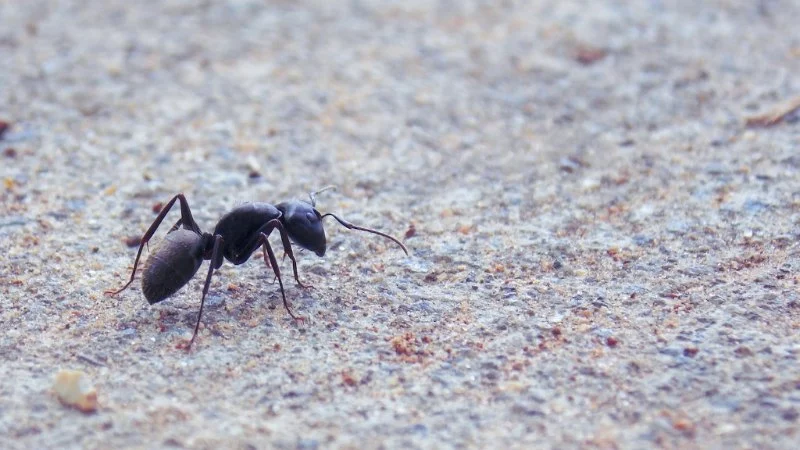
- 1. Understanding Ant Behavior
- 2. How Ant Bait Works
- 3. How Ant Spray Works
- 4. When to Use Ant Bait
- 5. When to Use Ant Spray
- 6. Real-Life Case Study: Using Bait and Spray for Ant Control
- 7. Recommended Products for Ant Control
1. Understanding Ant Behavior
Before deciding between ant bait and spray, it's essential to understand how ants behave and how they infest your home. Ants are social insects, living in colonies with a queen, workers, and sometimes, winged reproductive ants. The workers are responsible for foraging for food and bringing it back to the colony, which is why they are often the first to encounter baits or sprays.
Ants communicate through pheromones, leaving trails to direct other ants to food sources. This behavior plays a crucial role in how baits and sprays work to eliminate entire colonies. Understanding these patterns can help you determine the most effective method for ant control.

ProCore Pest Control
GreenvilleGreenville CountySouth Carolina
25 Apopka Ave, Greenville, SC 29609, USA
2. How Ant Bait Works
Ant bait works by attracting ants to a food source that contains a slow-acting poison. When ants consume the bait, they return to their colony and share the bait with other ants, including the queen. Over time, this causes the colony to collapse, as the poison spreads through the entire nest.
One of the key advantages of using ant bait is that it targets the entire colony, not just the ants you see. However, it can take several days or even weeks to see results, as it depends on the ants’ foraging patterns and how quickly they spread the bait. The best part is that baiting can be a very low-toxicity method when you use products designed for safe indoor use.
3. How Ant Spray Works
Ant sprays, on the other hand, are designed to kill ants on contact. They work quickly, eliminating visible ants immediately. Sprays can be applied directly to areas where ants are active, such as along trails, entry points, and around nests. Some sprays also leave a residue that can continue to kill ants for a short period after application.
While sprays offer immediate results, they are generally less effective in eliminating an entire colony. They primarily target the ants that are exposed, leaving the rest of the colony intact. Sprays are often a better choice for addressing small, isolated ant problems, but they may not provide long-term control if the colony remains active.
4. When to Use Ant Bait
Ant bait is the best option when you want to eliminate the entire colony. If you notice ants consistently foraging in a particular area, such as your kitchen or pantry, it's likely that they have a nest nearby. In such cases, placing ant bait stations where you see activity can be an effective long-term solution. Here are some situations where bait is your best choice:
4.1 Long-Term Control
Ant bait is ideal when you want to get rid of the entire colony. Since ants share the bait with other members of the colony, including the queen, it can provide lasting control.
4.2 Persistent Ant Problems
If you’ve tried sprays without success, or if ants keep coming back, it may be because you haven't targeted the nest. Ant bait can address the root of the problem by eliminating the colony.
4.3 Non-Toxic Solutions
If you have children or pets, bait is often a safer, more controlled option than sprays. Many baits are designed with safety in mind, though you should still take precautions to keep them out of reach.
5. When to Use Ant Spray
Ant sprays are most useful for quick action or localized problems. If you’re dealing with a small number of ants or need to act fast, sprays can provide an immediate solution. Here are some scenarios where ant spray is a good choice:
5.1 Quick Knockdown
If you’ve spotted ants actively moving around your kitchen or other areas of your home, and you want to eliminate them immediately, an ant spray can be a fast solution. It’s especially useful when you have a visible trail of ants and want to stop them in their tracks.
5.2 Isolated Infestations
If you notice a small group of ants around a specific area, such as a window or door, an ant spray can target them directly. This is useful when you want to eliminate ants without addressing an entire colony.
5.3 Temporary Solution
If you’re dealing with a temporary infestation and don’t want to wait for bait to take effect, ant sprays offer an instant fix. However, for long-term results, consider using baits or a combination of both methods.
6. Real-Life Case Study: Using Bait and Spray for Ant Control
A homeowner in California found themselves battling a persistent trail of ants in their kitchen. Initially, they used an ant spray to address the immediate problem, but the ants returned within a few days. They then switched to ant bait and placed bait stations near the kitchen sink and along the trail. Within two weeks, the ants were gone, and they noticed fewer ants in the house overall.
This case highlights the importance of using the right tool for the job—while sprays can provide a quick fix, bait offers a long-term solution by eliminating the entire colony.
7. Recommended Products for Ant Control
If you're looking for the best products to get rid of ants in your home, here are some highly effective solutions available at PestControlHub:
- Maxforce Quantum Ant Bait: A high-performance bait that attracts and eliminates ants at the source.
- Terro Liquid Ant Bait: A safe, non-toxic option that targets the entire ant colony.
- Raid Ant & Roach Killer Spray: Fast-acting spray that kills ants on contact and provides lasting control.
- Ortho Home Defense Insect Killer: A versatile spray that can be used both indoors and outdoors to control ants and other pests.
Visit PestControlHub to find the best products and get expert advice on how to eliminate ants effectively and safely.


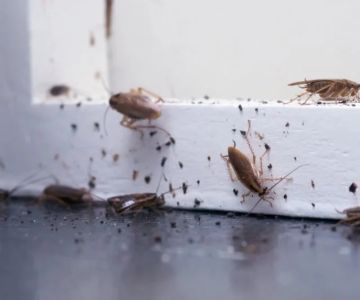

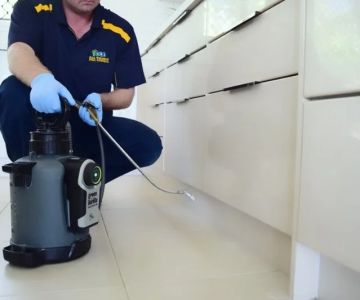
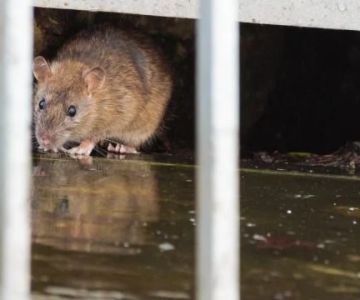
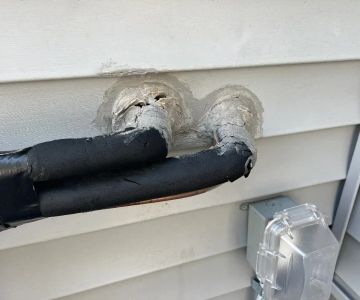
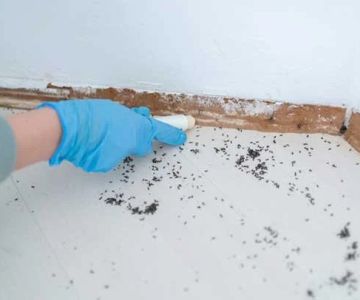
 Wildlife Resolutions4.0 (443 reviews)
Wildlife Resolutions4.0 (443 reviews) Pest Marshals of Toledo5.0 (2 reviews)
Pest Marshals of Toledo5.0 (2 reviews) LS Rodent Proofing & Pest Control Service5.0 (4 reviews)
LS Rodent Proofing & Pest Control Service5.0 (4 reviews) Best Termite & Pest Control4.0 (16 reviews)
Best Termite & Pest Control4.0 (16 reviews) Varment Guard Wildlife Services5.0 (28 reviews)
Varment Guard Wildlife Services5.0 (28 reviews)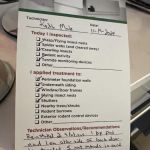 Pestban Inc4.0 (394 reviews)
Pestban Inc4.0 (394 reviews) How to Use Monitors to Detect Pest Entry: A Comprehensive Guide
How to Use Monitors to Detect Pest Entry: A Comprehensive Guide How to Predict Which Pests Will Invade Next – Smart Pest Forecasting for the U.S.
How to Predict Which Pests Will Invade Next – Smart Pest Forecasting for the U.S. How to Conduct a Pest Risk Assessment at Home – Expert Guide
How to Conduct a Pest Risk Assessment at Home – Expert Guide How to Block Pest Entry Around Deck Joists: Effective Solutions
How to Block Pest Entry Around Deck Joists: Effective Solutions How to Safely Use Fumigation Methods: A Comprehensive Guide for Homeowners
How to Safely Use Fumigation Methods: A Comprehensive Guide for Homeowners Why Pests Are More Active After Rain: Understanding the Link Between Weather and Pest Behavior
Why Pests Are More Active After Rain: Understanding the Link Between Weather and Pest Behavior